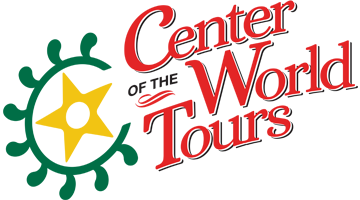Ghana is a beautiful destination. We are touted among other nations in the West Africa region as unmatched with our natural traits of hospitality. Growing up in Adabraka, a locally populated town located in the central district of the capital of the country, Accra, I was exposed to many tourists and their activities as well as other entertainment personalities in the country. My family house was situated just adjacent to the most popular street in Accra – the Kwame Nkrumah Circle Street.
Just in front of my house, I stood and waved miniature flags to welcome certain world icons like Nelson Mandela. Simply, no social, political or cultural activity took place in Accra without the use of this street, and by extension, my house (hope you can see the smile on my face now).
I remember very well my active participation in the Duke of Edinburgh Award Scheme as a young boy (between 13-18 years). Some of the activities earned a participant various awards (bronze, silver, and gold awards). They included art and craft, exploration and cultural exchanges. Because of my short height and the flexibility of my bones, I was always made to lead the cultural dance anytime we had exchange programmes with our friends from the diaspora.
My mother told me I was born one early Friday morning at the Country’s premier Teaching Hospital, the Korle Bu Teaching Hospital, in Accra. Growing up among my siblings, I responded to a name they called me – “Nii Otu’’. I respond to this name even in my sleep. Among the Ga people of Accra, the name “Nii” means “King” and given to most male children. The female is “Naa”, meaning “Queen”. To us, we are all royals. Royalty is thrust on us at birth and we live it.
Apart from the peace and cultural heritage, spiced up with the captivating smiles of the beautiful people of Ghana, I recommend that any time you visit Africa, know your Ghanaian name. You can know this before you enplane to Africa. Trust me, upon your arrival, when you meet any Ghanaian and you are introduced, mention your “Ghanaian name” and you will receive a double dose of smile and welcome.
But like Juliet in Shakespeare’s Romeo and Juliet, I ask “what is in a name”?
In an article written by Olive Akpebu Adjah of the Institute of African Studies Library, University of Ghana, Legon, on the topic, “WHAT IS IN A NAME? GHANAIAN PERSONAL NAMES AS INFORMATION SOURCES,” he gave some scholarly perspectives to the meaning of Ghanaian names.
Naming is a universal cultural practice and, in every society, names are given to children at birth. According to Wegrjm (2008), a name is of distinction, chosen, conferred and announced. However, the way names are given, reasons for choice of particular names and the rituals involved in naming, vary from society to society. Birth is regarded among most African societies as the beginning of the rites of passage, which comprise birth, puberty, marriage and death, and all these are celebrated to show their significance. Among most Ghanaian communities, the newborn baby is kept away from public view for seven days and brought out on the eighth day during what is called the “outdooring ceremony”. In southern Ghana, the ethnic communities of the Akan, Ewe, and Ga observe the outdooring ceremony on the eighth day, as they believe that babies remain attached to the spirit world for the first seven days. Therefore, if a baby should pass away prior to the outdooring, there is usually no mourning. If the baby survives until the eighth day, then it is assumed that the baby has come to “stay,” is worthy to be called a person, and therefore is given a name (Opoku, 1978). In effect, the baby is announced, proclaimed, named and initiated into the society. A name makes the child a member of the family and society. According to Opoku (1978), it is as if to say a “stranger” has become a full member of the family and has its own name. In other words, the “child’s humanness and identity is confirmed with the symbolism of a name” (Ansu-Kyeremeh, 2000, p. 24). Therefore, if the baby survives the first seven days, very early in the morning of the eighth day, the baby is brought outdoors for the first time and given a name.
We shall now see how you can get your name before touching down in Ghana. The simplest way is by adopting a Day name.
Ewe, Akan, and Ga (dominant ethnic groups in Ghana) children are named according to the day on which they are born. This is considered their soul name. Agyekum (2006) calls day names the first automatic birthday name. Day names specify the calendar circumstances under which a person arrives into the world of humans (Kropp Dakubu, 1981). Every day of the week is believed to be under the tutelage of a god and each day has a set of names for females and males. This system of naming is widely used among many ethnic groups in Ghana and even in the neighbouring countries of Togo and the Republic of Benin. As soon as a child is born, he or she acquires the name that corresponds with the day of birth. It is considered a name assigned as part of one’s destiny and, according to Agyekum (2006), a name that the soul of a person decides to allow the unborn child to enter the world. It is the child’s soul name, and the child’s behaviour and fate are both affected by the day of birth.
I present to you a list of Ghanaian names to choose from before you get to Ghana:
| Day of the Week | Akan names | |
| Male | Female | |
| Monday | Kwadwo | Adwoa |
| Tuesday | Kwabena | Abena |
| Wednesday | Kwaku | Akua |
| Thursday | Yaw | Yaa |
| Friday | Kofi | Afua |
| Saturday | Kwame | Ama |
| Sunday | Kwasi | Akosua |
So, if you are called for instance, Rocky Tay or Roselyn Peach, check out your Akan or Twi name for the day you were born. If Rocky was born on Friday, his Ghanaian name will be “Kofi’’, since he is a male. So, in introducing himself to any Ghanaian, he can say “ Hi, my name is Kofi” or “my name is Kofi Tay or Kofi Rocky”. If Roselyn on the other hand who is a female and was born on a Saturday, her Ghanaian name will be “Ama”. She can introduce herself as “ Ama, Ama Roselyn or Ama Peach”.
Now you know and understand why the Manager of Center of the World Tours is called Kofi. Say your Ghanaian name!

